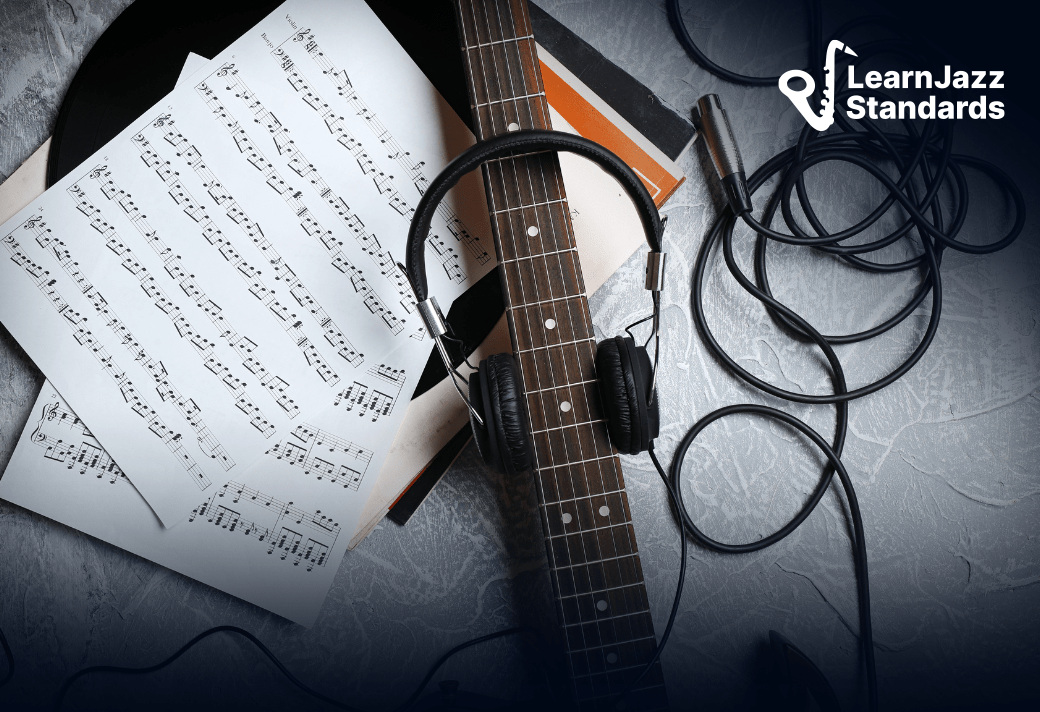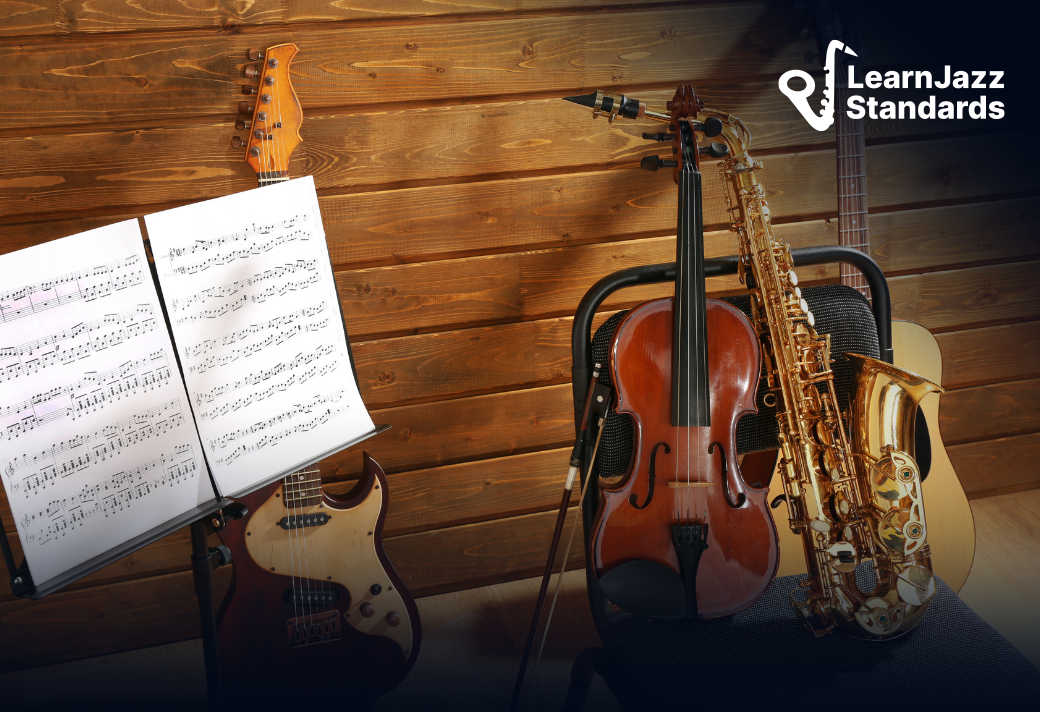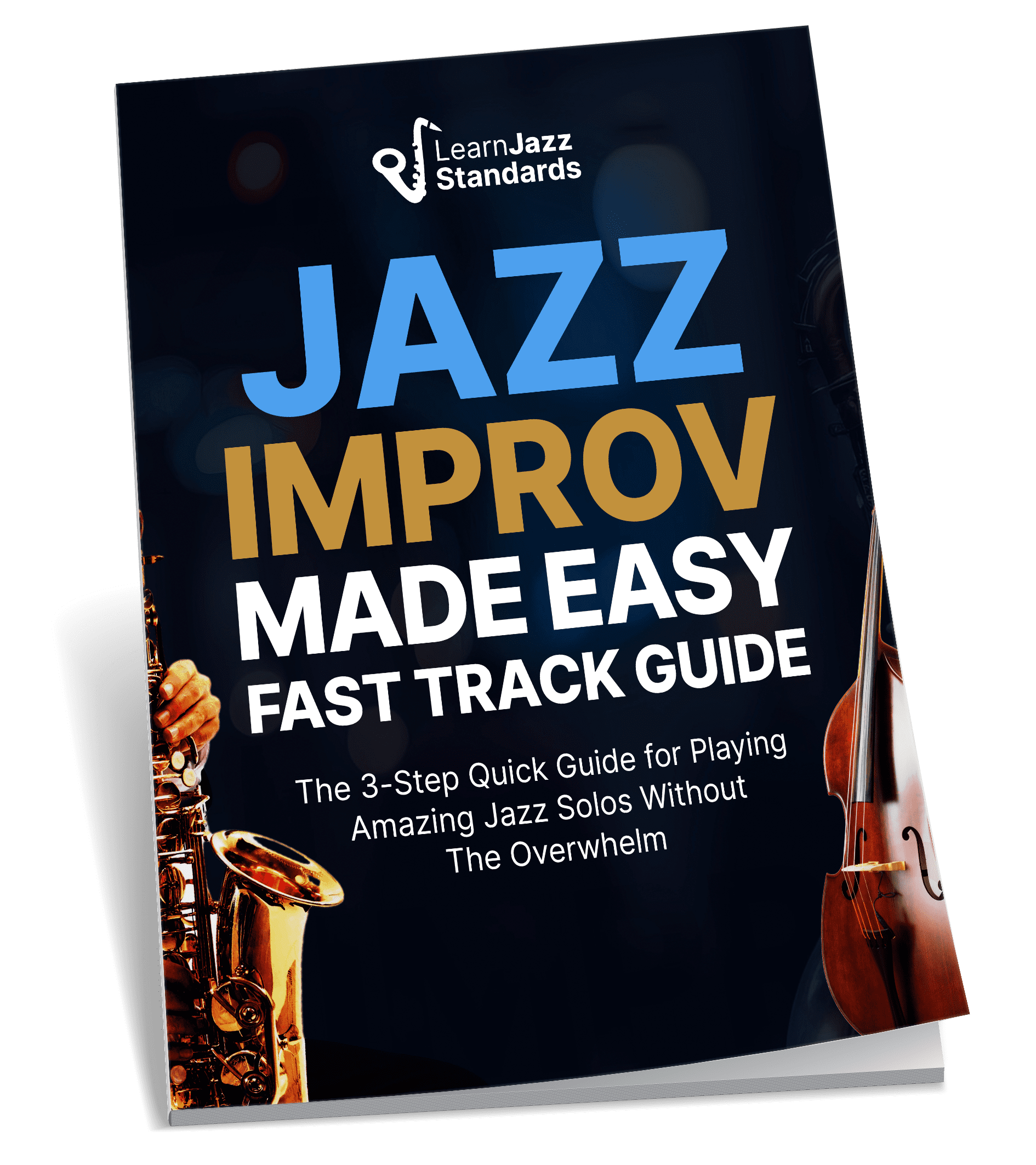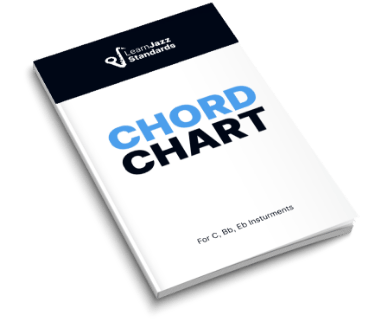(This is a guest post by Mark Morely-Fletcher.)
Bird said it best.
At least, I don’t know of anyone who’s said it better since.
“You’ve got to learn your instrument. Then, you practice, practice, practice. And then, when you finally get up there on the bandstand, forget all that and just wail.”
That’s what we all want, isn’t it? To “just wail” when we hit the stage.
So often, you feel that you’ve got it down in the practice room. The ability to wail is there.
But then when you get on stage – nothing.
No wailing. Just okay. Maybe even outright disappointment.
Today, I’m going to show you something you can add to your practice that will have you consistently wailing with the best of them when you hit the gig.
Watch out, though – there’s a twist coming a bit later on…
Practice and performance conditions are different.
No matter how much you wish it could be otherwise, gigs happen out there in the messy, imperfect real world. The conditions will never be perfect like they tend to be in the practice room.
This can create a serious gap between how you practice and how you perform. Since one of the keys to making practice really effective is to do it in conditions that are as close to the ones that you’ll perform in as possible, this can be a big deal.
If you don’t put anything in place to bridge that gap, then it shouldn’t come as a surprise if your practice and your performance go very differently.
There’s absolutely still a place for spending plenty of time practicing in an ideal practice environment. When you’re looking to learn difficult new skills (and you’ll find plenty of these throughout your journey as a jazz musician) then you want to give yourself all the advantages that you can to start with.
That’s not the whole story, though. Once you’ve mastered playing in a controlled environment, you need to go one step further and make sure that you develop your ability to deliver in more realistic conditions.
Simulate difficult conditions when you practice.
This doesn’t have to be complicated. Just think about some of the situations that you’ve found challenging at gigs and have a go at replicating them at home.
You should choose things which match your individual situation, but here are a few ideas to get you started:
- A cramped space makes it hard to play your instrument
- The room’s too hot or too cold
- The sound you’re getting from your instrument is horrible
- The other musicians are much too quiet, or much too loud
- There are distracting sights or sounds
When you practice in “adversity conditions” like these then you’ll start to get a handle on how much spare technical facility you need on top of what it takes to play things in perfect conditions (check out Diego Maldonado’s article on “headroom” for more on this). You’ll also start to work out what adjustments you can make which will help you to cope with these specific conditions.
However, while developing the ability to deal with a specific set of conditions can be helpful, it’s not the real reason we’re setting things up like this (I promised you there was a twist coming!).
The physical conditions are not the real issue…
In almost every instance, the physical challenge itself isn’t what causes the real problems.
It’s how you react to any difficult conditions that can really throw you off the rails. As soon as you start thinking that the conditions aren’t how you’d like them to be, you trigger an emotional response that is very unhelpful.
You start to fall into a “victim” mentality.
You wish things were different.
You might even think that it’s unfair.
You perceive the outside environment as doing stuff TO you. It’s easy to forget that there are still plenty of things that you control.
In the worst case, you might even admit defeat mentally. It feels as though things are hopeless and you stop trying properly.
When you do this (whether you go all the way down the victim path or just one step) you’re immediately compromising your ability to play well. One of the single most important things for you to do as a musician is to keep your focus purely in the present moment. Only on what you’re playing now – no other distractions.
Think back to the end of that Bird quote from earlier: “when you finally get up there on the bandstand, forget all that and just wail.”
Turns out that for most of us, it’s not the wailing that’s the problem. It’s the ability to forget about all the other stuff. The ability to accept how things are and just get on with it.
This is the main reason you want to practice in difficult conditions
It’s not about building the physical capability to play your instrument in them.
It’s to get better at ignoring all the external difficulties and distractions. To strengthen your ability to keep your focus 100% on playing great music no matter what’s going on around you.
That’s what will help you forget all the other stuff so that you CAN just wail.
If you’re like most musicians, then you probably haven’t really thought about the mental side of practice and performance before – let alone spent time working on it. Your mindset and mental skills (like your ability to set and maintain focus) can be trained systematically, though, and they’re vital for great performances.
Like any other type of practice, you’ll get the best results from just working on one thing at a time. Although there are many other things that you could (and should) develop to have some really big impacts on your performance we’re just going to consider how to work with these adversity conditions for now.
Practical steps for your practice.
Think back to your list of challenging gig conditions and identify the ones that you feel are most “unfair”. The ones where you really find yourself distracted by them.
Make these the “adversity conditions” that you’re going to work with and find ways to really exaggerate them.
You may have heard the old military saying: “Train hard, fight easy”. That’s great advice here too. You don’t have to restrict yourself to realistic challenges. You want to deliberately exaggerate the “unfairness” of the conditions that you put yourself in so that your ability to “accept” things and just get on with it gets a serious workout.
For example:
- Don’t just make yourself play in a slightly cramped setup, but box yourself in so you can hardly move.
- Don’t just have a vaguely distracting sound sitting quietly somewhere in the background. Put a video or some music on at full blast so that it completely drowns out anything you play (maybe check the neighbours are out first).
- Set up your instrument to give the most horrible sound possible and work with that.
Get creative. Have some fun seeing just how challenging you can make things for yourself.
Now that the challenge is set up, it’s important to be really clear about exactly what the point of this exercise is.
It’s not about playing brilliantly, so don’t feel bad if that doesn’t happen. It’s unhelpful to judge the quality of your playing in the moment, anyway – but that’s a topic for another day.
Your goal for this exercise is simply not to be bothered by the adverse conditions. Learn to accept them and just get on with playing as best you can.
Better still, lean into it. See it as a chance to test yourself. See if you can develop an attitude of “Bring it on!”.
You probably don’t need to include a lot of this in your practice routine – a little can go a long way. Be honest about your situation, though. If the way you react to conditions on the gig is a big issue for you then give it the time it deserves.
It’s probably something you’ll never completely grow out of.
Going further…
Jazz musicians typically spend most, if not all, of their practice time developing the technique and knowledge that they need to get the music inside them out there for others to hear.
I hope this article has shown you that working on your mindset and focus can be just as important a part of this. The exercises here are a great first step in this direction. They’re not a substitute for technical practice but a useful complementary approach. Spend some time on both of them and great things become possible.
Once you’ve made some progress with them you should look into other ways to upgrade your mindset further.
If you take only one thing away from this, remember to avoid getting sucked into a victim mentality.
Don’t wish things were different but accept them as they are and see what possibilities this gives you.
It might help to think about a classic exercise that improv comedians use (it shouldn’t be a surprise that this is relevant for us musicians too). Rather than having your instinctive reaction to difficulties be “No, but…”, make it “Yes, and…”
Let me know how you get on in the comments below. And I’d love to hear about the “adversity conditions” that you invent for your own practice.











